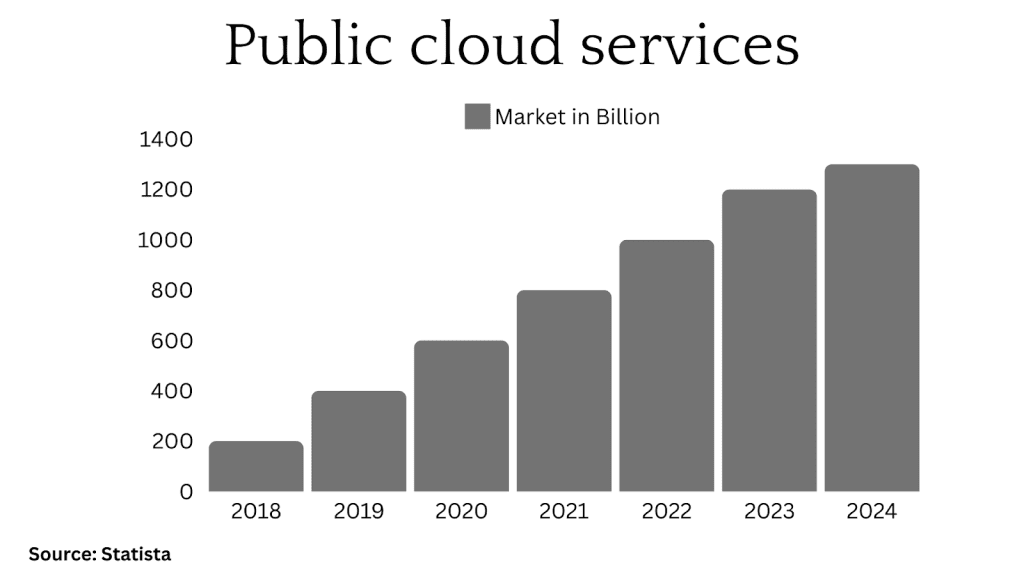
Private cloud solutions are increasingly recognized as a vital component of modern business strategies, providing organizations with the agility and control needed to thrive in a competitive landscape. As companies navigate the complexities of digital transformation, the demand for tailored cloud environments that prioritize security, compliance, and performance is on the rise. The private cloud offers a unique blend of benefits that enable businesses to scale operations seamlessly, protect sensitive data, and optimize IT resources.
1. Scalability and Flexibility: The Cornerstones of Growth
In the realm of business growth, scalability and flexibility are paramount. Private cloud solutions excel at providing these crucial elements, allowing businesses to adapt and expand with ease. Private cloud environments offer unparalleled scalability, enabling companies to adjust their resources based on their current needs. This dynamic allocation ensures that businesses can seamlessly accommodate growth without the constraints of physical infrastructure.
Another key advantage of private cloud solutions is their ability to tailor infrastructure to specific business requirements. This customization allows for optimized performance for industry-specific applications, streamlined workflows that align with unique business processes, and efficient resource utilization based on individual company needs. By offering such flexibility, private clouds empower businesses to create an IT environment that precisely matches their growth trajectory.
2. Enhanced Security and Compliance: Building Trust and Reliability
As businesses grow, so does the importance of robust security measures and regulatory compliance. Private cloud solutions offer superior protection compared to public cloud alternatives, making them an ideal choice for companies prioritizing data security. Private clouds provide advanced security features, including dedicated firewalls, end-to-end encryption, intrusion detection systems, and access control mechanisms. These comprehensive security measures ensure that sensitive data remains protected, fostering trust among customers and partners.
Indeed, many industries cannot afford to ignore these regulations. In this area, private cloud solutions are the best since they provide tailor-made compliance frameworks meant for certain industries’ laws, data residency control to conform to certain geographical limitations, and audit trails that may assist in providing full reports on compliance.
3. Improved Performance and Reliability: Driving Operational Excellence
To support sustained business growth, organizations need IT infrastructure that delivers consistent, high-level performance. Private cloud solutions meet this need by offering optimized environments tailored to specific business requirements. Private clouds provide dedicated resources that ensure consistent performance, low-latency connections for faster data processing, and customized hardware configurations for specific workloads.
Minimizing downtime is crucial for maintaining growth momentum. Private clouds excel in this area by offering redundant systems that prevent single points of failure, automated failover mechanisms for quick recovery, and predictive maintenance to address potential issues before they cause disruptions. By minimizing downtime, private cloud solutions help businesses maintain their growth trajectory without costly interruptions.
4. Cost Efficiency and Financial Control: Investing in Growth
While growth is essential, it must be balanced with financial prudence. Private cloud solutions offer a compelling value proposition by providing cost-efficient scaling options and predictable pricing models. Private clouds deliver several financial advantages, including fixed monthly or annual costs that simplify budgeting, the elimination of unexpected hardware expenses, and a reduced need for in-house IT staff. These factors contribute to more predictable IT spending, allowing businesses to strategically allocate resources towards growth initiatives. This highlights the increasing recognition of private clouds as a cost-effective solution for scaling operations.
5. Innovation and Competitive Advantage: Staying Ahead of the Curve
In today’s rapidly evolving business landscape, innovation is key to maintaining a competitive edge, and private cloud solutions offer the ideal environment for fostering this innovation and driving growth. Private clouds support innovation by enabling rapid provisioning of development environments, seamless integration with DevOps tools and practices, and providing isolated testing environments for risk-free experimentation.
These features allow businesses to accelerate the development and deployment of new products and services, enabling them to stay ahead of competitors and capture new growth opportunities. Moreover, corporations can quickly adapt to market changes by utilizing private cloud services, while adopting advanced technologies becomes simple, enabling them to offer unique, cloud-supported offerings. Such flexibility and their prowess in technology andlogy help them gain competitive advantages, directly leading to the establishment of a growth path for enterprises.


Source: Statista
6. Integration and Collaboration: Enhancing Team Efficiency
Efficient collaboration is essential for driving business growth, and private cloud solutions play a crucial role in enhancing teamwork and streamlining operations. Private clouds excel at integrating legacy systems with modern cloud applications, providing unified data access across the organization, and enabling smooth workflows between different departments. These integration capabilities ensure that every aspect of the business works in harmony, supporting overall growth objectives.
Furthermore, sophisticated project management platforms, real-time document collaboration, and secure file sharing with version control are available in private cloud environments. This boosts efficient teamwork through the improved collaboration tools, despite the places that people are globally, therefore increasing productivity.
Comparison Table: Private Cloud vs. Public Cloud for Business Growth
| Feature | Private Cloud | Public Cloud |
| Security | High (dedicated resources) | Moderate (shared resources) |
| Compliance | Highly customizable | Limited customization |
| Performance | Consistent and optimized | May vary based on shared resources |
| Cost Predictability | High | Can fluctuate with usage |
| Scalability | Customizable, controlled growth | Rapid, on-demand scaling |
| Control | Full control over infrastructure | Limited control |
| Innovation Support | High (dedicated resources) | Moderate (shared resources) |
| Integration Capabilities | Extensive with legacy systems | May require additional solutions |
This table highlights the key differences between private and public cloud solutions, emphasizing the advantages of private clouds for businesses focused on controlled, secure growth.
Frequently Asked Questions (FAQs)
1. How can cloud technology help the business grow?
Business growth is enhanced using cloud technology, which provides scalable resources and enhances collaboration by allowing rapid deployment of new applications. It supports efficient management of data and applications, enables quick adaptation to market changes, and cuts operational costs, thereby facilitating innovation while expanding market reach.
2. What are the benefits of cloud solutions for a business?
Cloud computing solutions have a lot of benefits, including cost savings through pay-as-you-go models and being able to scale up in order to meet fluctuating demands. In addition, they enhance better collaboration tools as well as strong security measures. The solutions also enable one to access data or applications easily from any point, thus enhancing efficiency and leading to business growth.
3. What is the future of the private cloud?
Increased compliance and customization needs make the future of the private cloud look promising; henceforth, there will be an increase in its use due to security enhancements. Therefore, with attempts by firms to take charge of their IT landscapes occurring, private clouds are bound to adapt as technology grows, hence becoming more flexible, integrated, and cost-effective.
Conclusion
Private cloud solutions offer businesses the ability to customize their infrastructure, maintain control over sensitive data, and align IT resources with specific growth strategies. By providing a secure and flexible environment for innovation, private clouds enable companies to stay competitive, accelerate time-to-market for new products and services, and ultimately drive sustainable business growth. As organizations continue to navigate the complexities of digital transformation and data management, private cloud solutions will remain a key enabler of business growth, offering the perfect balance of cloud benefits and enterprise-grade control.
